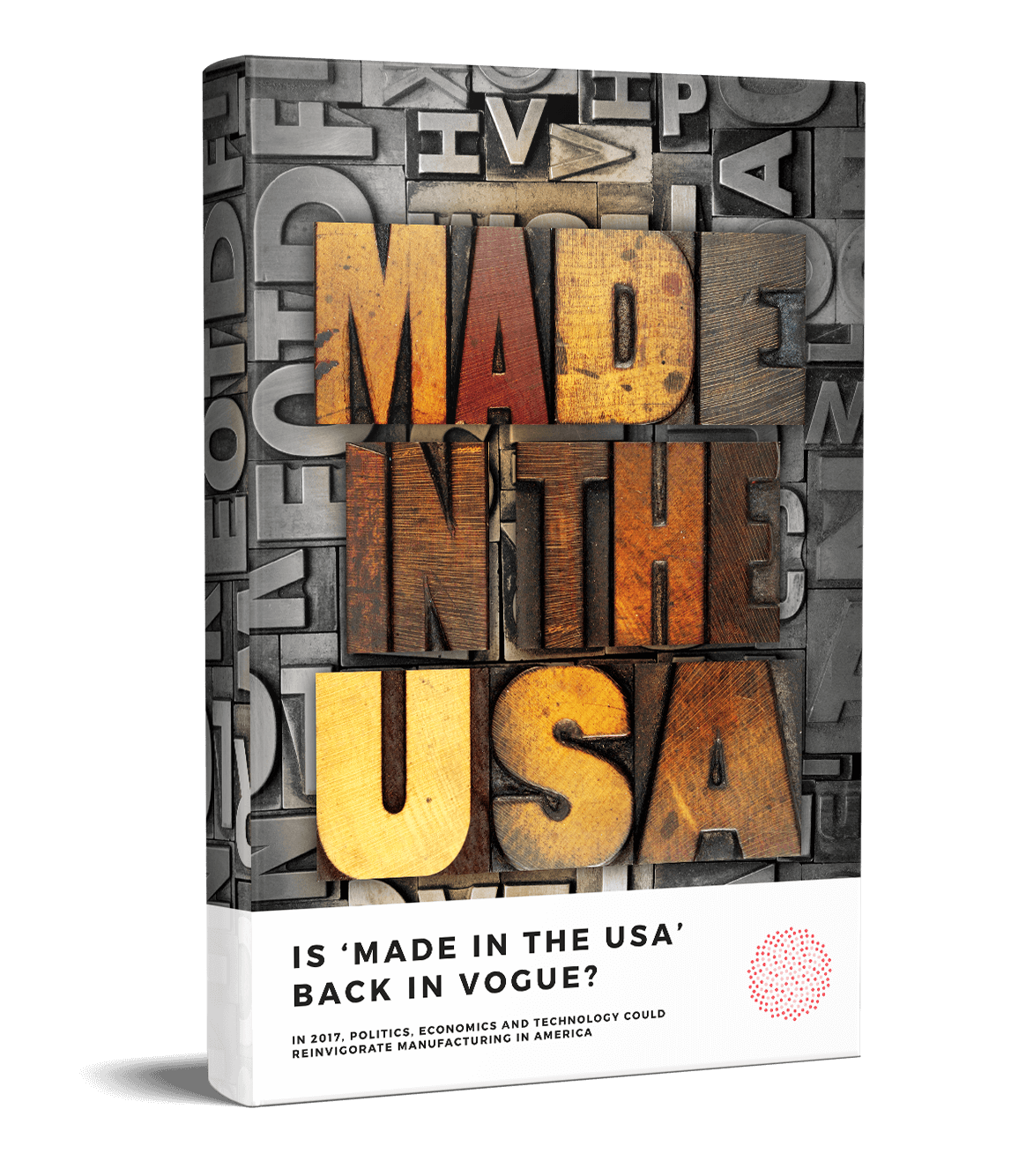WHITEPAPER
Is 'Made In The USA' Back In Vogue?

About The Whitepaper
Recent political trends suggest reshoring would protect and promote US manufacturing jobs. One of US President Donald Trump's consistent campaign promises was to bring jobs back to America. During his very first day in the White House, Trump took steps to support the domestic economy and local job creation, including manufacturing, by renegotiating and reversing planned participation in economic alliances and trade agreements, such as the North American Free Trade Agreement (NAFTA) and Trans-Pacific Partnership (TPP), respectively.
Critics of these global trade agreements say the deals make it easier and cheaper to make products overseas, eliminating manufacturing jobs that blue-collar workers desperately need. In a 2010 report, the Economic Policy Institute estimated that US trade deficits with Mexico had displaced 682,900 US jobs since the implementation of NAFTA in 1994. Since 2000, the US has lost 5 million manufacturing jobs, according to the Bureau of Labor Statistics.
Political protectionism, demand for local products and a renewed interest in manufacturing make the US attractive. However, the economics of globalization, affordable foreign labor and consumers' expectations make foreign markets enticing.
Key Findings

29% decrease in US manufacturing jobs (to 12 million) since 2000

8 in 10 Americans prefer to buy an item made in America rather than one imported from abroad

250% increase in the share of US-based manufacturing companies actively reshoring production to the US since 2012

95% of Americans’ clothes were made in the US in the 1960s; by 2015 only 3% was produced in the US and 97% was outsourced abroad

3.5 million more manufacturing jobs are needed in the US in the next 10 years









